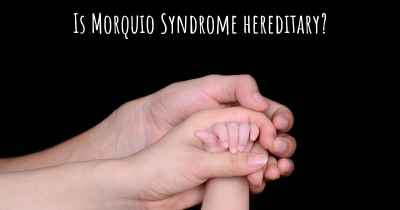Which are the symptoms of Morquio Syndrome?
See the worst symptoms of affected by Morquio Syndrome here

Morquio Syndrome, also known as mucopolysaccharidosis type IV (MPS IV), is a rare genetic disorder that affects the body's ability to break down certain complex carbohydrates called glycosaminoglycans (GAGs). This condition is caused by a deficiency of specific enzymes required for the breakdown of GAGs, leading to their accumulation in various tissues and organs.
There are two subtypes of Morquio Syndrome: type A and type B. Both subtypes share similar symptoms, but they are caused by different enzyme deficiencies. Type A is characterized by a deficiency of the enzyme N-acetylgalactosamine-6-sulfatase, while type B is caused by a deficiency of the enzyme beta-galactosidase.
The symptoms of Morquio Syndrome can vary in severity and may appear in early infancy or later in childhood. Some of the most common symptoms include:
- Skeletal abnormalities: One of the hallmark features of Morquio Syndrome is the presence of skeletal abnormalities. These can include short stature, abnormal curvature of the spine (scoliosis), abnormal development of the ribs, and a barrel-shaped chest. The bones may also be unusually thin and prone to fractures.
- Joint abnormalities: Individuals with Morquio Syndrome often experience joint abnormalities, such as limited joint mobility, laxity (looseness) of the joints, and early-onset osteoarthritis. These joint problems can cause pain, stiffness, and difficulty with movement.
- Facial features: Morquio Syndrome can affect the development of facial features. Individuals may have a prominent forehead, widely spaced eyes, a flattened bridge of the nose, and a large tongue.
- Dental abnormalities: Dental problems are common in Morquio Syndrome. These can include overcrowding of teeth, misalignment, and abnormal enamel development. Dental abnormalities can lead to difficulties with chewing, speech, and oral hygiene.
- Hearing loss: Some individuals with Morquio Syndrome may experience hearing loss. This can be due to a combination of factors, including abnormalities in the structure of the ear and recurrent ear infections.
- Respiratory issues: Morquio Syndrome can affect the respiratory system, leading to a range of respiratory problems. These can include shortness of breath, recurrent respiratory infections, and sleep apnea. Respiratory complications can be severe and may require medical intervention.
- Cardiovascular complications: In some cases, Morquio Syndrome can affect the heart and blood vessels. Individuals may develop heart valve abnormalities, such as mitral valve regurgitation or aortic regurgitation. These cardiovascular complications can impact heart function and may require surgical intervention.
- Abdominal abnormalities: Morquio Syndrome can also affect the abdominal organs. Individuals may have an enlarged liver and spleen, hernias, and abnormalities in the structure of the urinary tract.
- Delayed development: Children with Morquio Syndrome may experience delayed development, both physically and intellectually. This can include delayed growth, delayed acquisition of motor skills, and learning difficulties.
It is important to note that the severity and combination of symptoms can vary widely among individuals with Morquio Syndrome. Some individuals may have milder symptoms and a longer life expectancy, while others may experience more severe complications that can significantly impact their quality of life.
Diagnosis of Morquio Syndrome typically involves a combination of clinical evaluation, medical history assessment, genetic testing, and specialized laboratory tests to measure enzyme activity and detect the accumulation of GAGs in the body.
Treatment for Morquio Syndrome is primarily focused on managing the symptoms and complications associated with the condition. This may involve a multidisciplinary approach, including regular medical monitoring, surgical interventions (such as orthopedic procedures to address skeletal abnormalities), physical and occupational therapy, and supportive care to improve quality of life.
While there is currently no cure for Morquio Syndrome, ongoing research and advancements in medical treatments offer hope for improved management and potential future therapies.








